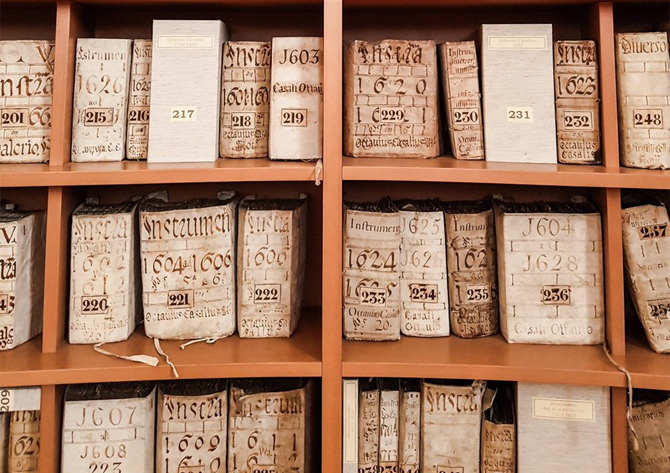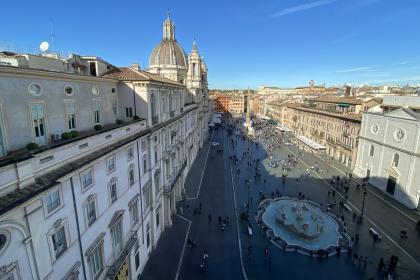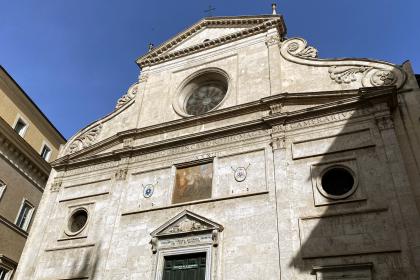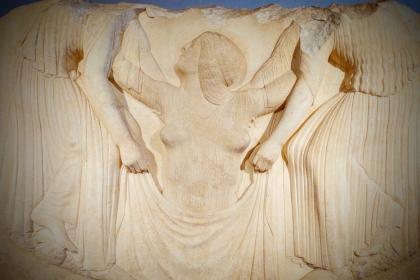
The Capitoline Historical Archive is kept inside the monumental complex of the Oratorio dei Filippini in Piazza della Chiesa Nuova, near Piazza Navona. The building was designed and partly built by Francesco Borromini who, in 1637 won the competition announced by the Philippine Fathers for the construction of buildings to be used for the new headquarters of their Congregation, originally located along the current Via della Chiesa Nuova.
Borromini dedicated himself to the construction of the façade of the Oratory, the first and second courtyard, the Refectory and the Recreation Room, the Library, the Clock Tower and all the rooms on the service courtyard. The Oratory in particular is one of the most wonderful masterpieces of Baroque art, with its famous façade inspired by the human body with open arms, almost as if to embrace the faithful. After 1650, due to disagreements with the Congregation, Borromini's project was completed by Camillo Artucci. In 1873 the entire complex was expropriated by the State Property which assigned the property to the Municipality of Rome and, in 1922, the Capitoline Historical Archive was transferred there.
The Archive has the task of conserving, enhancing and making available the documentation produced by the Administration of the Municipality of Rome-Rome Capital. Its institution matured in a climate of strong civil commitment which saw, immediately after 1870, ministers, deputies, administrators and intellectuals collaborating in the construction of the project of Rome, the cultural, as well as political, capital of the new Kingdom of Italy.
Today the Capitoline Historical Archive, which houses the Library and the Newspaper Library, is also a center of services and culture for the history of Rome from the Middle Ages to the contemporary age. It collaborates in many scientific research programs with universities and other Italian and foreign cultural institutions.
Photo credits: courtesy of the Capitoline Historical Archive official site
Place Navone

 Condividi
Condividi
L'un des complexes urbains les plus spectaculaires de la Rome baroque
Basilique de Sant'Agostino in Campo Marzio

 Condividi
Condividi
Musée National Romain - Palais Altemps

 Condividi
Condividi
Informations
Monday-Friday: 9.00 am - 4.00 pm
 Condividi
Condividi
Location
Pour connaître tous les services d'accessibilité, visitez la section Rome accessible.












































